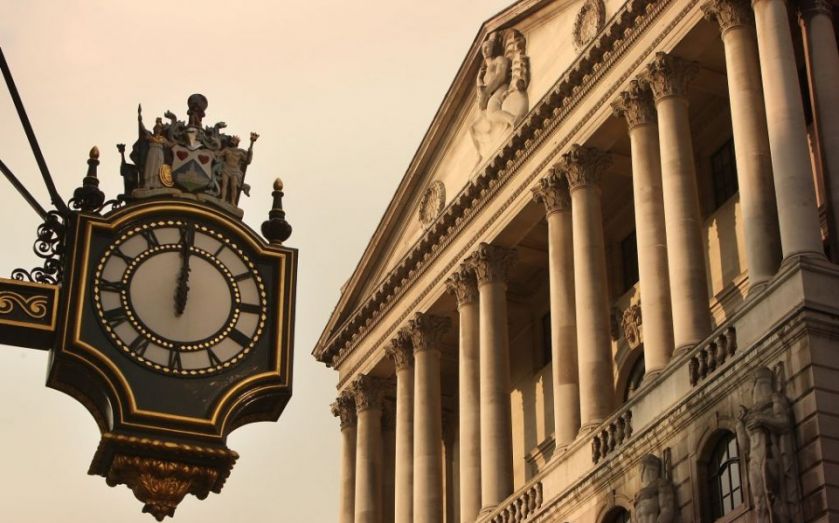Bank of England inflation report: UK inflation rate could slide into negative

Bank of England governor Mark Carney has warned UK inflation could slip into negative territory this spring, but he also upgraded the economy's growth forecasts on the belief it's most likely to be benign.
Threadneedle Street warned it was "more likely than not that headline inflation would turn negative this year". In such a scenario, it would consider cutting interest rates and enacting more quantitative easing.
The central bank also revised up its economic growth forecasts from 2.6 per cent to 2.9 per cent for 2016. It expects lower energy prices to bolster consumers' spending power, which will drive economic growth.
Anticipation of lower prices led the bank to hike estimates for household income from 1.25 per cent to 3.5 per cent for 2016. This will boost consumer spending which is now forecast to rise by 3.75 per cent, up from an earlier estimate of 2.5 per cent.

"The recent slips in oil and food prices are transitory and they will, in the short term, provide a near term boost in growth – hence the upgrades to growth through 2016/17" said Jeremy Cook, chief economist at World First.
"This is not to say that the Bank of England is in a hiking mood. Governor Carney was at pains to emphasise that the outlook remains 'balanced' in the UK and that a deterioration in the economic and monetary conditions could lead to an increase in quantitative easing or lower interest rates."
Inflation fell to a joint-record low of 0.5 per cent in December, way below the target of just under two per cent, mainly due to gas and electricity prices.
Carney had to write an open letter to chancellor George Osborne which was also released today. It said price declines were "temporary" and different to prolonged deflation which is "persistent and generalised".
"Two thirds" of the reason for the inflation rate falling around 1.5 per cent below the Bank of England's target were because of price movements energy, food and other goods prices, he said.
"In other words – [this is] two thirds ‘good’ deflation and one third ‘bad’ deflation," Ben Brettell, senior economist, Hargreaves Lansdown. said.
The Confederation of British Industry echoed Carney's view saying this was most likely to be the positive kind of inflation which would actually aid economic growth.
"While the risk of deflation is growing, it is unlikely that we will see falling prices for a prolonged period, as the pressure from lower oil prices unwinds ahead," Rain Newton-Smith, CBI director of economics, said.
Bank of England policymakers will now have to square seemingly contradictory economic indicators. While deflation is now "more likely than not" they're still expecting strong economic growth for this year.
At the last Monetary Policy Committee meeting, hawks Martin Weale and Ian McCafferty voted against a hike. Before this they had voted for a 0.25 per cent interest rate hike every month since August 2014